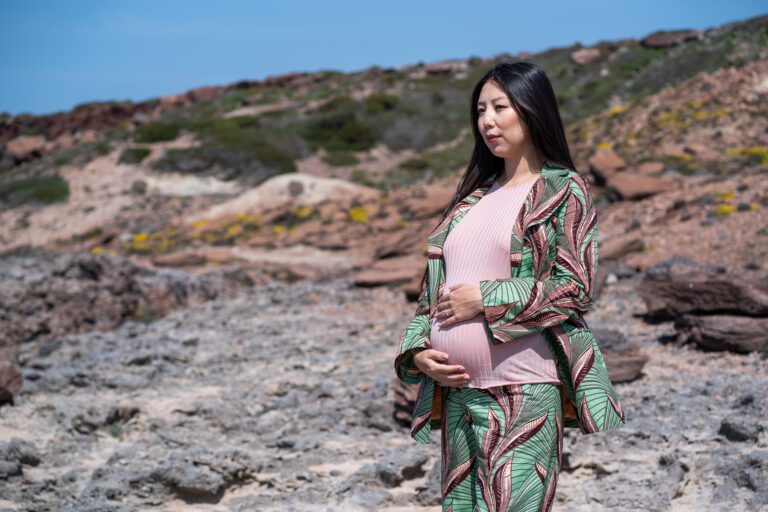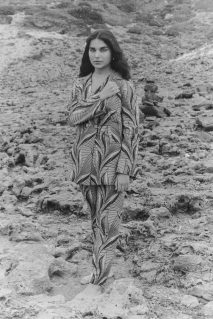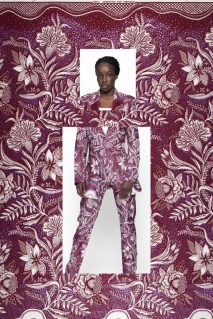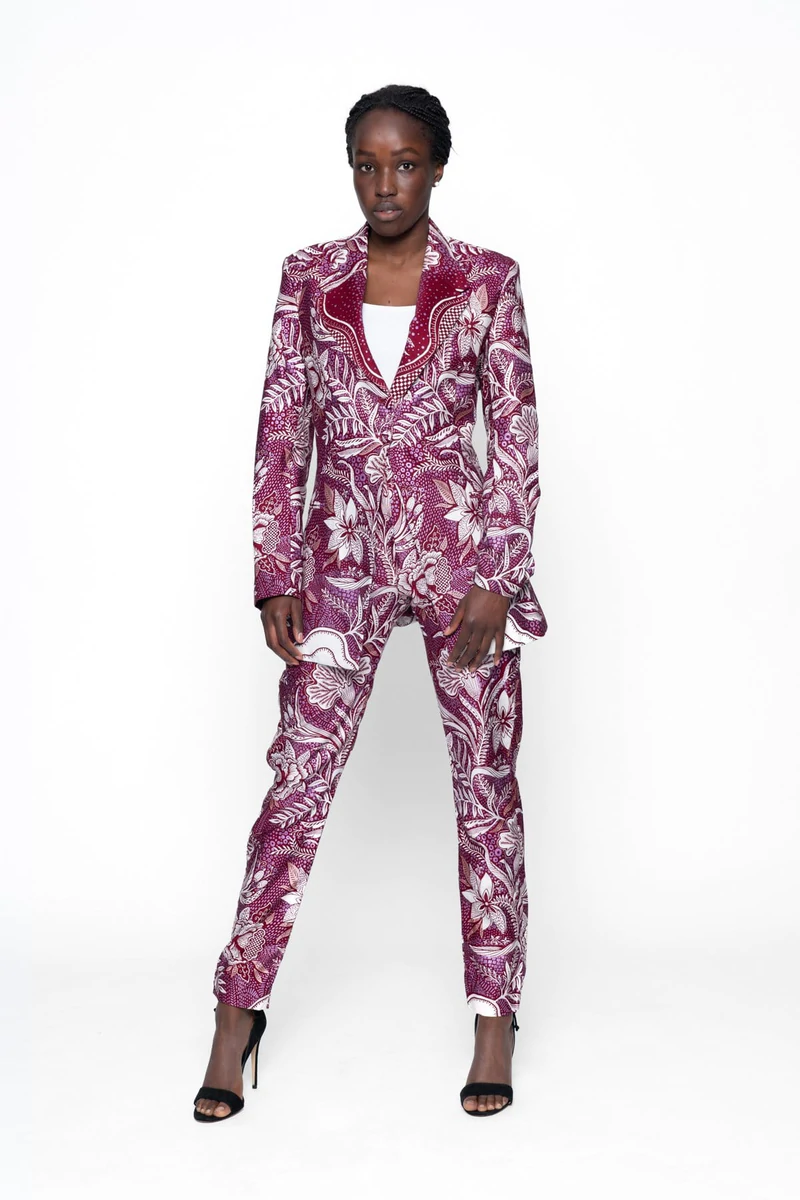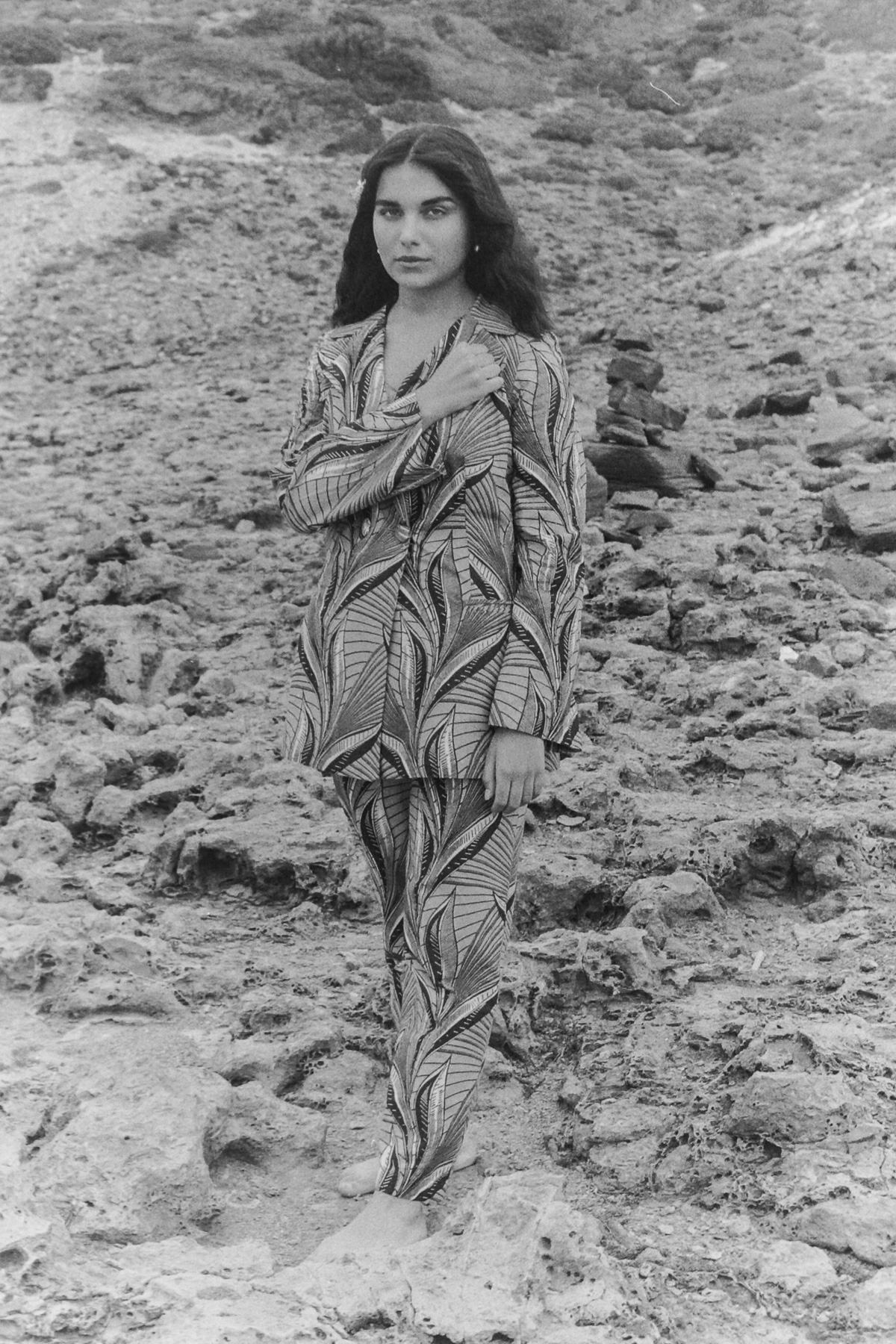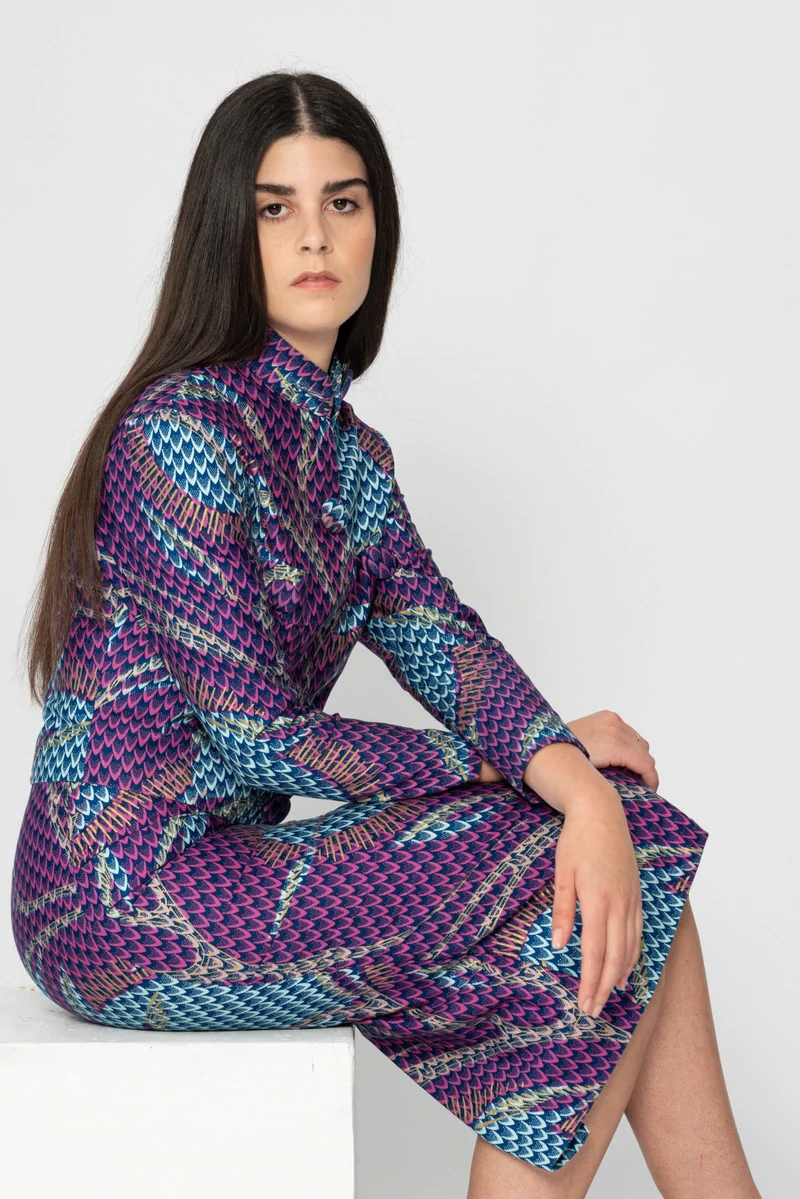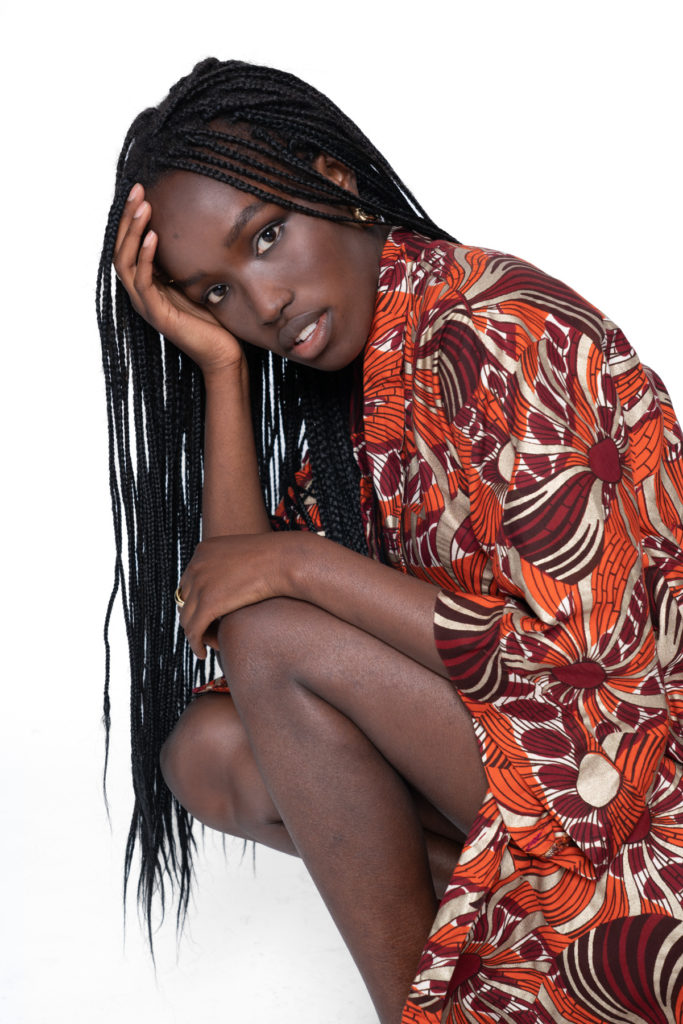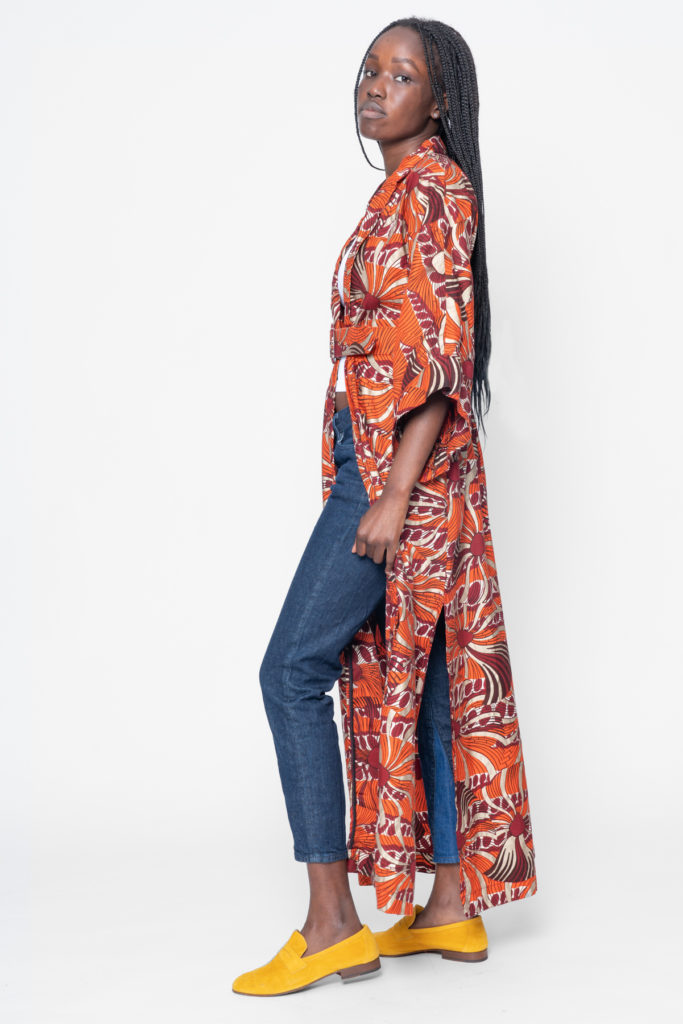‘Be better, together – For the planet and the people’
The 2020 Olympic Games in Tokyo have a primary goal of sustainability, the first round of Olympics to do so. By making strides and tangible actions toward a more sustainable planet, this year’s Games are worth remembering. Therefore, Maakola’s newest piece of fashion innovation is dedicated to the Tokyo Games, meant to remember the strides toward sustainability that Japan is taking for a better world.
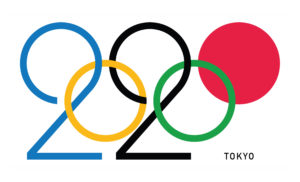
The Hélène Kimono, named after Hélène de Pourtalès and honoring modern Japan, will be sustainable wear reminiscent of a sustainable event.
Hélène de Pourtalès as inspiration
As the first female to become an Olympic gold medalist, Swiss-American Hélène de Pourtalès is the namesake of our upcoming kimono piece. She and 22 other women were the first of their gender allowed to compete in the Paris Olympic Games in 1900, and they paved the way for other women to have that same opportunity, even over a century later.
With Hélène as the inspiration for the Helene Kimono, we are paying tribute to all of the women throughout history who worked to overcome opportunity gap obstacles. Beyond that, we pay tribute to everybody in a minority group—whether by identities like race, sexual orientation, or disability—who was a fighting voice for their respective groups, who spoke for those who were unable to speak themselves.
Today, the International Olympic Committee (IOC) has a commitment to gender equality in sports. Chapter 1 of the Olympic Charter even designates an entire rule (Rule 2.8) to the implementation of the “principle of equality of men and women.”
However, we have a long way to go until we can say that there is true social inclusion and gender equality in sports and the world at large. At Maakola, we aim to infuse sustainable and progressive fashion into all facets of the globe, with the goal of using our clothing to inspire change. The Helene Kimono, with a powerful and thought-provoking namesake, aims to do just that.
Olympic progress toward sustainability “United by Emotion.”
That is the motto of the Tokyo 2020 Olympics, postponed to 2021. It implies a global togetherness in light of the struggles that humanity has endured in the past year of pandemic chaos. Considering this motto, at the heart of unity is sustainability. We cannot expect to inhabit the Earth wholly and enduring without working together to achieve the common goal of sustainability.
Tokyo’s plan for sustainability includes working toward the improvement of climate change, resource management, the natural environment, diversity, and equality.
Do the last two sound familiar? The goals of social inclusion and equality are not independent of other progress. Global sustainability means more than just environmental change—it implies an important social change as well.
Because of the Olympics’ worldwide renown, it is expected to be especially influential in enacting change toward this goal of environmental and social sustainability. Based in Tokyo, a city rich in culture and innovation, this year or this year’s event will be a catalyst for transformation toward a better society.
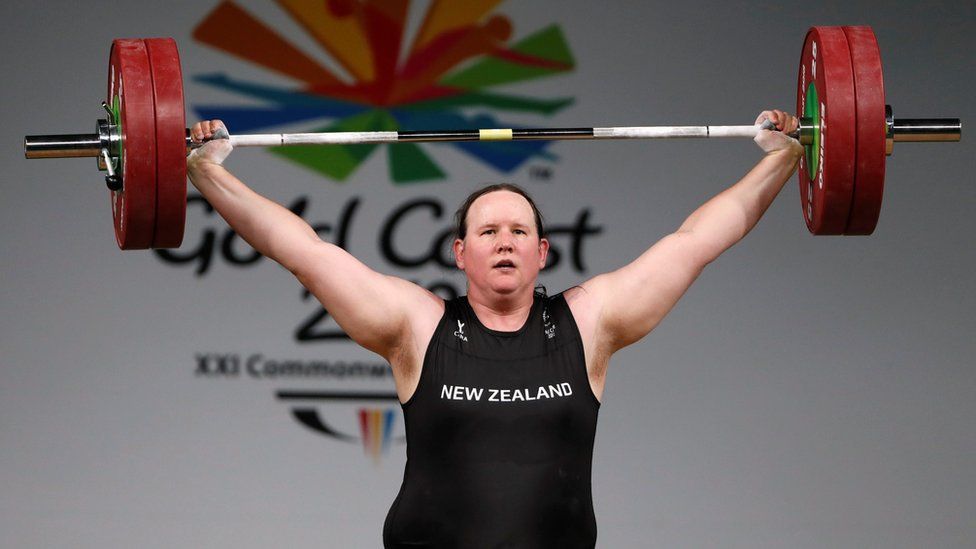

Tokyo’s actions for societal advancement
Already, there are steps being taken to see this transformation into fruition. Marie Sallois, IOC Director for Corporate and Sustainable Development, has confirmed that the Olympic agenda is to “maximize use of existing venues,” which will, in turn, lead to reduced carbon emissions. To that point, only eight out of the 43 venues are newly created for the 2021 competitions.
Similarly, electricity will be hydrogen fueled in the spaces for competitors, and the entire village will be reused after the Games as a wide range of facilities. The village itself currently touts a variety of green spaces to encourage thoughtfulness about preserving the Earth.
With a promise to be net carbon zero, Tokyo 2020 is reducing resource and energy consumption significantly. All carbon emissions left over from non-renewable energy sources will be compensated with carbon certificates as part of an energy-saving program.
Helene Kimono and sustainable fashion
At first glance, the concept of the Olympic Games may not seem like it lends itself directly to fashion.
However, sports are a perfect vehicle for the promotion of social inclusion, equality, and sustainability, which are goals we hold in high esteem at Maakola. Through the participation of people from across the world, from all walks of life, all gender identities and bodies, we can bridge the gaps of opportunity that have presented themselves throughout history. Beyond that, by tying the sports to worldwide unity, we can convince viewers of the importance of global sustainability, like the Olympics has done this year.
Enter the Helene Kimono.
Culturally, the piece is inspired by the Japanese kimono, a traditional T-shaped garment that is deeply embedded in Japanese history and customs. Meant as a nod to the host of the 2020 Olympic Games, the kimono respects tradition while bringing in modern fashion. It also is a means of recognition of the aforementioned Hélène de Pourtalès, who represents progress and opportunity, and therefore is an acclamation of general progress throughout Olympic history.
Mix up your look with our bold printed kimono. With warm hues and luxe detailing this bestselling piece is a tailored-to-fit timeless layer. Available as a longline kimono or as a short kimono jacket, this indulgently feminine kimono jacket can be styled to suit any occasion, day or night. Wear either open at the waist for a relaxed silhouette or belted and cinched to accentuate curves. 3/5 length sleeves add to the allure, flattering and elongating your arms.

